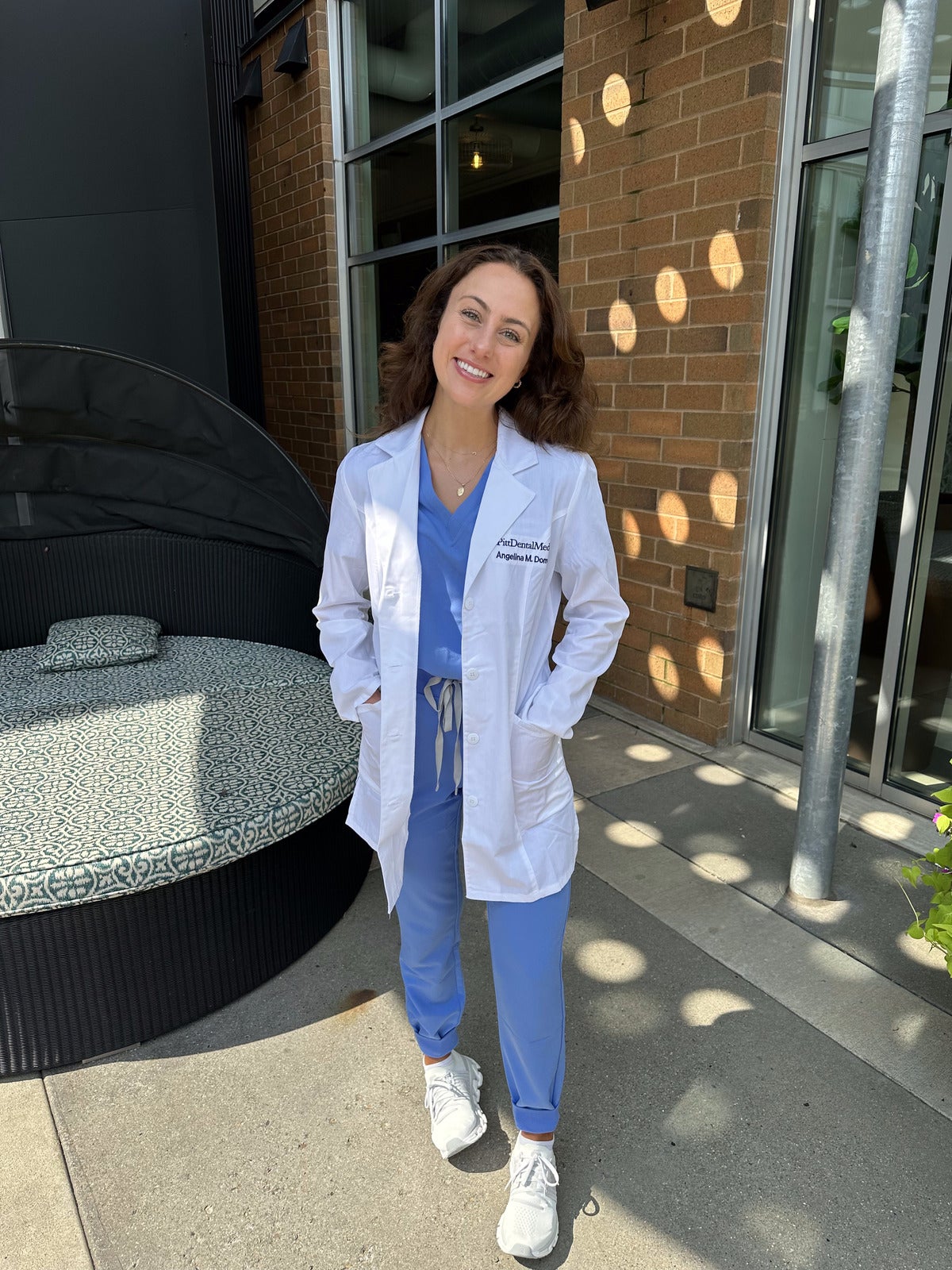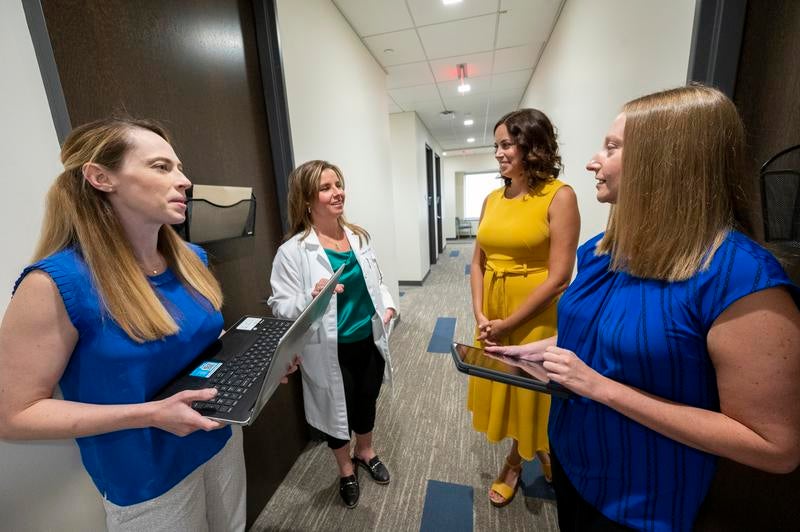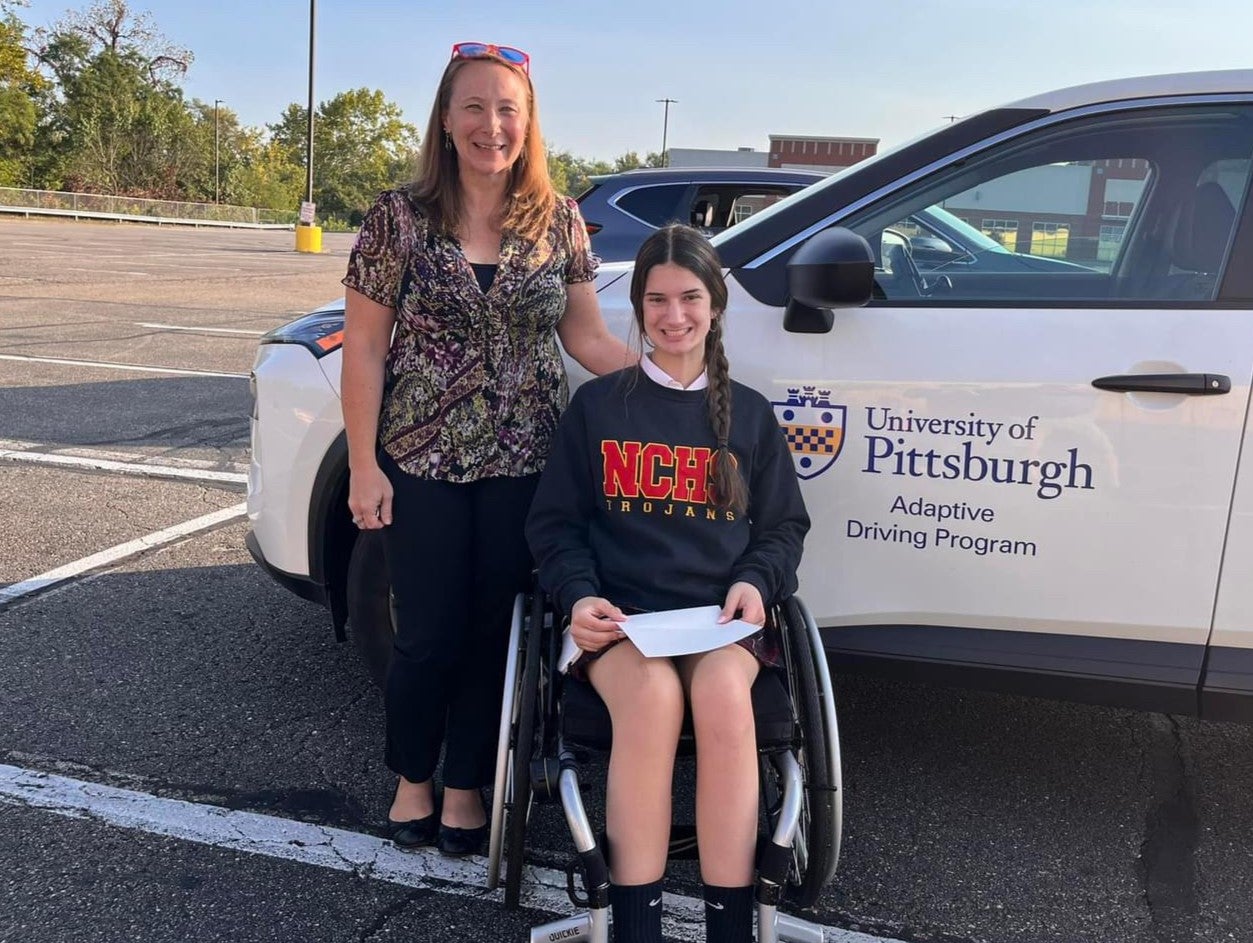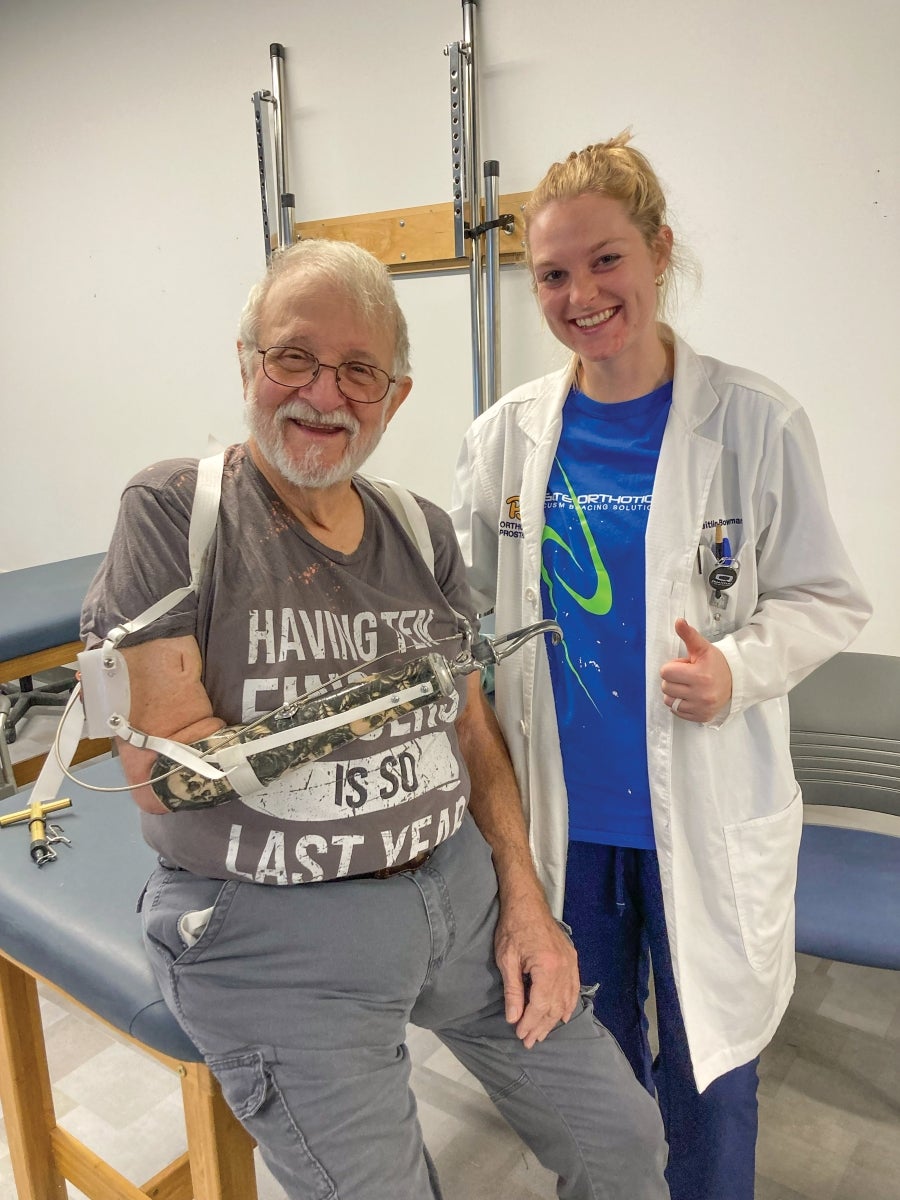- Info For
- Academics
- All Programs
- By Discipline
- Athletic Training
- Audiology
- Chiropractic
- Communication Science
- Counseling
- Emergency Medicine
- Health Informatics
- Nutrition
- Occupational Therapy
- Physical Therapy
- Physician Assistant Studies
- Prosthetics and Orthotics
- Rehabilitation Science
- Rehabilitation Technology
- Speech-Language Pathology
- Sports Science
- Sports Medicine
- Tuition and Scholarships
- Newsroom
- Community
- Research
- Events
- Request for Information
Newsroom

From Nutrition Science to Dental School: How SHRS Prepared Me for My Dream Career
Angelina Domenick, a 2023 graduate of the Nutrition Science program, utilized her experience in the NS program to facilitate her path to dental school. Learn about her experience and how it has prepared her for a career in dentistry!
Read More
University of Pittsburgh Now Offering DMSc for Physician Assistants
The University of Pittsburgh’s established doctoral program for practicing physician assistants/associates is now the Doctor of Medical Science (DMSc)!
Read More
Doctor of Clinical Science in Occupational Therapy Student Is Driving Change
Melissa Aleksak is the consummate interprofessional dedicated to improving lives. An established occupational therapist (OT) who owned her own business as a driver rehabilitation specialist in Scranton, PA, she moved to Pittsburgh in 2022 to become the director of the School of Health and Rehabilitation Sciences (SHRS) Adaptive Driving Program where she works alongside assistive technology experts in the Department of Rehabilitation Science and Technology.
Read More
Passion for Orthotics and Prosthetics Leads to National Scholarship
Caitlin Bowman Martwinski’s passion for her field is palpable. In her application for the 2024 American Board for Certification Orthotist & Prosthetist Scholarship, she wrote: “I will contribute to, strengthen and elevate our profession. I want to not only help my patients in their lives, but also be a part of the change that betters […]
Read MoreSHRS IN THE NEWS
-
Running in the cold? Here's why you should think twiceJanuary 22, 2025 | Pittsburgh Post-Gazette
-
Please Don’t Worry About Dieting This Holiday SeasonDecember 13, 2024 | Pittsburgh Magazine
-
Panthers Insider Show with Dr. Tim Suchomel and Stephanie MockDecember 7, 2024 | Panthers Insider Show
-
Spearheading a First for the ProfessionDecember 1, 2024 | Dynamic Chiropractic
-
Aging in Place: Can Older Americans Afford To Stay in Their Homes? (2025 Report)November 18, 2024 | This Old House
Browse by Collection
SHRS RESOURCES:
Pitt Passport required.

It's Possible at Pitt

© Copyright 2024 | University of Pittsburgh | School of Health and Rehabilitation Sciences




